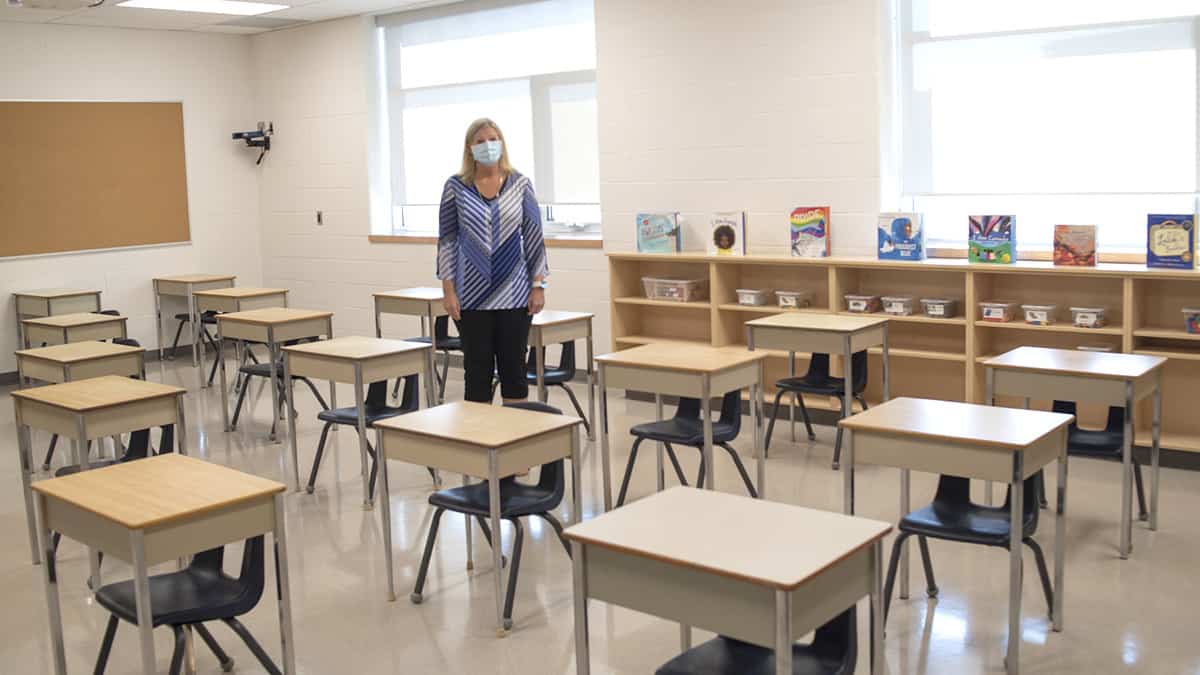Heavy snowfalls are typically welcomed by school kids, who not only see classes cancelled, but have plenty of outdoor fun awaiting them on their day off.
The snow-day tradition is another victim of the coronavirus pandemic, however.
Because of virtual learning implemented heavily this year to help kids learn from home safely, the school boards decided there’s no need to completely cancel classes in the event of a winter storm, as school days could continue in some form.
In addition to choosing to cancel snow days, the Waterloo Region District School Board has opted to close schools within the rural townships when buses do not run because of inclement weather.
WRDSB superintendent Scott Miller said the decision stems from the pandemic protocols put in place to allow schools to reopen, permitting students to continue learning without having to miss a day.
“As part of our rebuilding plan for schools in September with our COVID protocols and other things, what we were able to do was our teachers now all have a virtual environment that they’ve been working [with]. So, for all of our in-school learners, they all have access to either a Google classroom or a Brightspace platform which is designed to learn. And so when we do have a weather-impacted day where we’re not able to run our buses or open our schools, we now have the ability for our students to still be able to connect with their Google Classroom or their virtual platform and enable [them] to engage in some learning that day. So, it’s not a missed learning day any longer,” he said.
Miller says because of the way things used to work with regards to snow days – classes would be put together or other practices would be taken to ensure learning could continue – it made sense to take advantage of the new practices put in place because of COVID-19. Now, there are strict practices with regards to cohorts, and because mixing them is not allowed – even when there is inclement weather – keeping kids at home was the move best suited to learning and staying safe.
Miller says on days when they are at home due to weather, students are not expected to take part in what they call synchronous learning – where they are engaging with their teachers in real time. Instead, there is an assignment or some form of work posted to their virtual platform and students are asked to take part in that during the day.
“The expectation is that there would just be something posted on their virtual platform to work on. There isn’t an expectation that there would be what we call synchronous learning environments or real time opportunity where they would be necessarily engaging with their teacher online that day… it typically wouldn’t be a full school day and it would really range in the time that they may be engaged. Really, there wouldn’t be any new work certainly, but more work that would just be able to support previous learning,” he explained.
On days when there is bad weather, the Student Transportation Services of Waterloo Region looks at the observed conditions throughout the region and expected forecast by 5:30 a.m. Based on the information available to them, they decide whether or not it is safe for them to run buses and the decision is then communicated to the school board.
Parents should know by 6 a.m. whether or not buses are cancelled, and therefore if schools within the townships are closed for the day.









